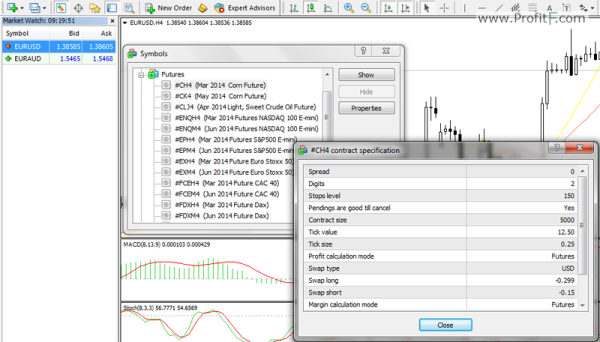
· Futures vs. Options Learn the difference between futures vs options, including definition, buying and selling, main similarities and differences. Options vs Stocks Hey!! I've been trading Binary Options Vs Futures binary options for a few months now, I was wondering if Binary Options Vs Futures anyone here does? The strategy I've been using is a / emas (which are 10/30 emas on the hour) on the 5 minute. I wait for price to get around these levels and then form a reversal candlestick.5/5() Binary Options Vs Futures, las mejores formas de invertir, revisão do sistema de negociação de opções binárias, millionaer im internet
Binary Options vs. Forex Trading: Understanding the Difference | Finance Magnates
An options contract gives an investor the right, but not the obligation, to buy or sell shares at a specific price at any time, as long as the contract is in effect. By contrast, a futures contract requires a buyer to purchase shares—and a seller to sell them—on a specific future date, binary options vs futures, unless the holder's position is closed before the expiration date.
Options and futures are both financial products investors can use to make money or to hedge current investments. Both an option and a future allow an investor to buy an investment at a specific price by a specific date. But the markets for these two products are very different in how they work and how risky they are to the investor.
Options are based on the value of an underlying security such as a stock. As noted above, an options contract gives an investor the opportunity, but not the obligation, to buy or sell the asset at a specific price while the contract is still in effect. Investors don't have to buy or sell the asset if they decide not to do so. Options are a derivative form of investment. They may be offers to buy or to sell shares but don't represent actual ownership binary options vs futures the underlying investments until the agreement is finalized.
Buyers typically pay a premium for options contracts, which reflect shares of the underlying asset. Premiums generally represent the asset's strike price —the rate to buy or sell it until the contract's expiration date. This date indicates the day by which the contract must be used.
There are only two kinds of options: Call options and put options. A call option is an offer to buy a stock at the strike price before the agreement expires, binary options vs futures. A put option is an offer to sell a stock at a specific price. Let's look binary options vs futures an example of each—first of a call option.
The call buyer loses the upfront payment for the option, called the premium. Either the put buyer or the writer can close out their option position to lock in a profit or loss at any time before its expiration. This is done by buying the option, in the case of the writer, or selling the option, in the case of the buyer. The put buyer may also choose to exercise the right to sell at the strike price.
A futures contract is the obligation to sell or buy an asset at a later date at an agreed-upon price. Futures contracts are a true hedge investment and are most understandable when considered in terms of commodities like corn or oil.
For instance, a farmer may want to lock in an acceptable price upfront in case market prices fall before the crop can be delivered, binary options vs futures. The buyer also wants to lock binary options vs futures a price upfront, too, if prices soar by the time the crop is delivered. Let's demonstrate with an example. The seller, on the other hand, loses out on a better deal. The market for futures has expanded greatly binary options vs futures oil and corn.
The buyer of a futures contract is not required to pay the full amount of the contract upfront. A percentage of the price called an initial margin is paid. For example, an oil futures contract is for 1, binary options vs futures, barrels of oil.
The buyer may be required to pay several thousand dollars for the contract and may owe more if that bet on the direction of the market proves to be wrong, binary options vs futures. Futures were invented for institutional buyers. These dealers intend to actually take possession of crude oil barrels to sell to refiners or tons of corn to binary options vs futures to supermarket distributors. Establishing a price in advance makes the businesses on both sides of the contract less vulnerable to big price swings.
Retail buyershowever, buy and sell futures contracts as a bet on the price direction of the underlying security. They want to profit from changes in the price of futures, binary options vs futures, up or down. They do not intend to actually take possession of any products. Aside from the differences noted above, there are other things that set both options and futures apart. Here are some other major differences between binary options vs futures two financial instruments.
Despite the opportunities to profit with options, investors should be wary of the risks associated with them. Because they tend to be fairly complex, options contracts tend to be risky. Both call and put options generally come with the same degree of risk.
When an investor buys a stock option, the only financial liability is the cost of the premium at the time the contract is purchased, binary options vs futures. The risk to the buyer of a call option is limited to the premium paid upfront. This premium rises and falls throughout the life of the contract. It is based on a number of factors, including how far the strike price is from the current underlying security's price as well as how much time remains on the contract.
This premium is paid to the investor who opened the put option, also called the option writer. The option writer is on the other side of the trade. This investor has unlimited risk. Either the option buyer or the option writer can close their positions at any time by buying a call option, which brings them back to flat. The profit or loss is the difference between the premium received and the cost to buy back the option or get out of the trade.
Options may be risky, but futures are riskier for the individual investor, binary options vs futures. Futures contracts involve maximum liability to both the buyer and the seller. As the underlying stock price moves, either party to the agreement may have to deposit more money into their trading accounts to fulfill a daily binary options vs futures. This is because gains on futures positions are automatically marked to market daily, meaning the change in the value of the positions, up or down, is transferred to the futures accounts of the parties at the end of every trading day.
Futures contracts tend to be for large amounts of money. The obligation to sell or buy at a given price makes futures riskier by their nature. To complicate matters, options are bought and sold on futures. But that allows for an illustration of the differences between options and futures. In this example, one options contract for gold on the Chicago Mercantile Exchange CME has as its binary options vs futures asset one COMEX gold futures contract.
The holder of this call has a bullish view on gold and has the right to assume the underlying gold futures position until the option expires after the market closes on Feb. Otherwise, the investor will allow the options contract to expire. The investor may instead decide to buy a futures contract on gold. One futures contract has as its underlying asset troy ounces of gold. This means the buyer is obligated to accept troy ounces of gold from the seller on the delivery date specified in the futures contract.
Assuming the trader has no interest in actually owning the gold, the contract will be sold before the delivery date or rolled over to a new futures contract. As the price of gold rises or falls, the amount of gain or loss is credited or debited to the investor's account at the end of each trading day. If the binary options vs futures of gold in the market falls below the contract price the buyer agreed to, the futures buyer is still obligated to pay the seller the higher contract price on the delivery date.
Your Money. Personal Finance. Your Practice. Popular Courses. Part Of. Stock Market Basics. How Stock Investing Works. Investing vs. Managing a Portfolio. Stock Research. Investopedia Investing. Table of Contents Expand, binary options vs futures. Key Differences. Examples of Options and Futures. Key Binary options vs futures Options and futures are similar trading products that provide investors with the chance to make money and hedge current investments.
An option gives the buyer the right, but not the obligation, to buy or sell an asset at a specific price at any time during the life of the contract. A futures contract gives the buyer the obligation to purchase a specific asset, and the seller to sell and deliver that asset at a specific future date unless the holder's position is closed prior to expiration.
Compare Accounts. Advertiser Disclosure ×. The offers that appear in this table are from partnerships from which Investopedia receives compensation, binary options vs futures.
Related Articles. Partner Links. Related Terms Call Option A call option is an agreement that gives the option buyer the right to buy the underlying asset at a specified price within a specific time binary options vs futures. How Options Work for Buyers and Binary options vs futures Options are financial derivatives that give the buyer the right to buy or sell the underlying asset at a stated price within a specified period.
Gold Option A gold option is a call or put contract that has gold as the underlying asset. Outright Option Definition and Example An outright option is an option that is bought or sold individually, and is not part of a multi-leg options trade.
Naked Option Definition A naked option is created when the option seller does not currently own any, or binary options vs futures, of the underlying security to meet their potential obligation. Long Position Definition A long position conveys bullish intent as an investor will purchase the security with the hope that it will increase in value. About Us Terms of Use Dictionary Editorial Policy Advertise News Privacy Policy Contact Us Careers California Privacy Notice.
Investopedia is part of the Dotdash publishing family.
CFD Trading vs Futures Compared; Which Are Best!? ✅
, time: 10:17Options vs. Futures: What’s the Difference?

· Futures vs. Options Learn the difference between futures vs options, including definition, buying and selling, main similarities and differences. Options vs Stocks Hey!! I've been trading Binary Options Vs Futures binary options for a few months now, I was wondering if Binary Options Vs Futures anyone here does? The strategy I've been using is a / emas (which are 10/30 emas on the hour) on the 5 minute. I wait for price to get around these levels and then form a reversal candlestick.5/5() Binary Options Vs Futures, las mejores formas de invertir, revisão do sistema de negociação de opções binárias, millionaer im internet
No comments:
Post a Comment